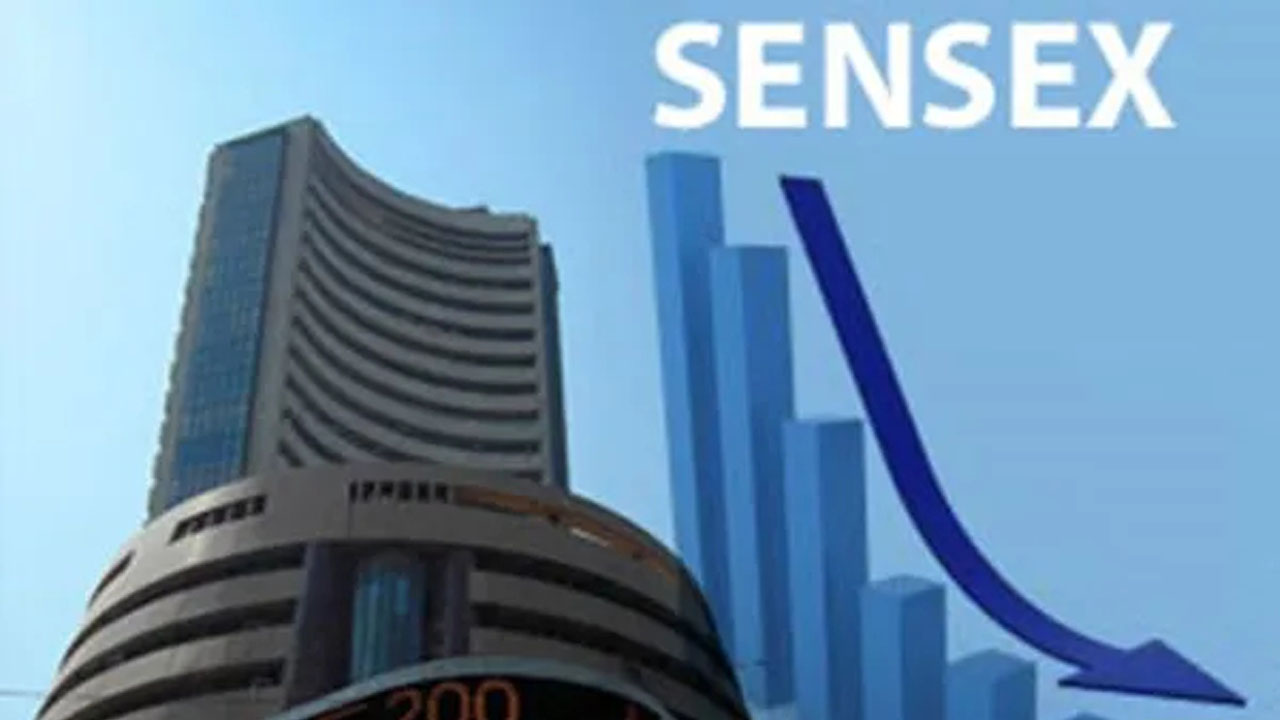Now Reading: Stock Market Plunge: Sensex Cracks 1200 Points, Nifty 50 Dips Below 23,700 Amidst Global Concerns
-
01
Stock Market Plunge: Sensex Cracks 1200 Points, Nifty 50 Dips Below 23,700 Amidst Global Concerns
Stock Market Plunge: Sensex Cracks 1200 Points, Nifty 50 Dips Below 23,700 Amidst Global Concerns

The Indian stock market witnessed a significant downturn, with the Sensex plummeting over 1200 points and the Nifty 50 breaching the 23,700 mark. This sharp decline has triggered concerns among investors and market analysts alike. Several factors have contributed to this selloff, including global economic uncertainties, rising inflation, and the recent outbreak of the HMPV virus.
Market Overview
The Sensex, the benchmark index of the Bombay Stock Exchange (BSE), experienced a steep fall of more than 1200 points, while the Nifty 50, the flagship index of the National Stock Exchange (NSE), dropped below the 23,700 level. This widespread selling pressure affected various sectors, with PSU banks, metals, oil and gas, realty, and media experiencing the most significant losses.
Factors Contributing to the Selloff
- HMPV Virus Scare: The recent detection of the Human Metapneumovirus (HMPV) in India, coupled with reports of a surge in respiratory illnesses in China, has instilled fear among investors. The HMPV virus, similar to COVID-19, can cause respiratory ailments across all age groups, particularly affecting young children, the elderly, and individuals with weakened immune systems. The potential economic impact of this outbreak has led to market jitters and a risk-off sentiment.
- Global Economic Uncertainties: The global economic landscape remains uncertain, with concerns about a potential recession in major economies like the US and Europe. Rising inflation, supply chain disruptions, and geopolitical tensions have further exacerbated these concerns.
- Rising Inflation: Inflationary pressures continue to persist, with rising prices of essential goods and services impacting consumer spending and business profitability. The Reserve Bank of India (RBI) has been taking measures to control inflation, but its persistence remains a concern for investors.
- Foreign Institutional Investor (FII) Selling: Foreign institutional investors have been consistently selling their holdings in the Indian stock market, contributing to the downward pressure. This selling spree can be attributed to various factors, including global risk aversion and profit-booking.
- Technical Factors: Technical factors, such as the breach of key support levels, may have also contributed to the selloff. When these levels are breached, it can trigger further selling as traders and investors liquidate their positions.
Market Impact
The stock market crash has had a significant impact on investor sentiment, with many experiencing substantial losses in their portfolios. The decline in market capitalization has also eroded wealth and raised concerns about the overall health of the economy.
Expert Views
Market experts suggest that the current market volatility is likely to persist in the near term. They advise investors to remain cautious and adopt a long-term investment horizon. Diversification across asset classes and sectors is also recommended to mitigate risk.
Conclusion
The Indian stock market’s recent downturn is a cause for concern, but it is essential to remember that market fluctuations are a normal part of the investment cycle. While the factors contributing to the selloff are significant, the long-term prospects for the Indian economy remain positive. Investors should remain vigilant, stay informed, and make investment decisions based on their risk tolerance and financial goals.









